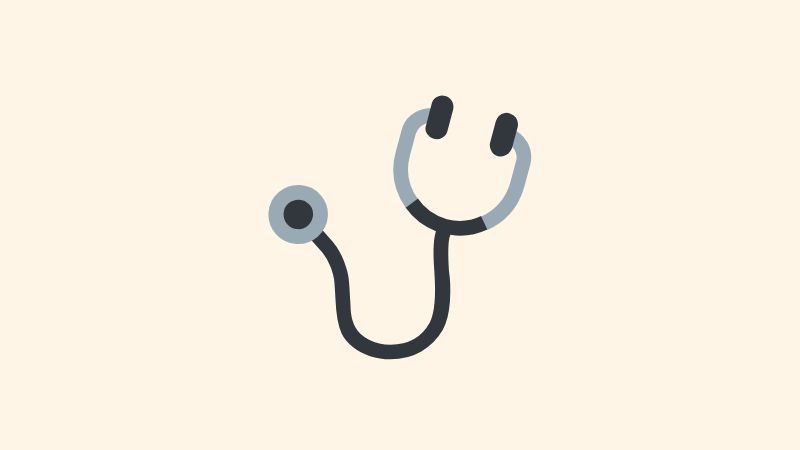Other Medical Conditions
Other medical conditions that may require a gluten free diet



Fast Facts:
⚡ A gluten free diet isn't only for coeliac disease - other conditions may benefit too
⚡ Wheat allergy is a serious condition and can trigger dangerous allergic reactions
⚡ 'Gluten Free' does not always mean wheat free
⚡ Strictness with gluten varies - some need total avoidance, others can tolerate small amounts
⚡ Always speak to a healthcare professional before starting on a gluten free diet
❓ Why Go Gluten Free (Beyond Coeliac Disease)?
Whilst coeliac disease and gluten intolerance are the most well-known reasons for avoiding gluten, there are many other medical conditions that can lead someone to follow a gluten free diet. People with digestive issues, allergies, autoimmune conditions, or even skin and neurological concerns sometimes find that reducing gluten helps ease symptoms.
That said, how strictly someone needs to avoid gluten can vary. For some, even crumbs are a problem; for others, it's more about moderation and symptom management. And whilst 'gluten free' may seem like a catch-all, not everyone who avoids gluten is doing so for the same reason - and not all gluten free products are safe for all people.
🌾 Wheat Allergy
Wheat allergy is a genuine food allergy - not a sensitivity or intolerance. It involves the immune system reacting to one of more proteins found in wheat (not just gluten). This can cause a trigger immediate allergic reactions, from mild to severe, such as:
- Hives, itching, or swelling of the skin
- Stomach cramps, nausea, or vomiting
- Respiratory symptoms like wheezing or nasal congestion
- In severe cases: anaphylaxis - a life-threatening reaction
🛒 Wheat Allergy & Label Reading
Gluten free does not always mean wheat free. Some gluten free products (like those made with wheat starch or 'de-glutonised wheat') may still contain wheat proteins that can cause allergic reactions.
People with a wheat allergy must carefully check ingredient levels to confirm that a product is both gluten free and wheat free, it's not as simple as just picking up gluten free items.
🧴 Contact Exposure: Wheat Allergy vs Coeliac Disease
Another key difference:
- Coeliac disease only reacts to ingested gluten - skin contact or touching gluten-containing products will not trigger the autoimmune reaction, unless accidentally transferred to the mouth
- Wheat allergy, on the other hand, can sometimes involve contact or even inhalation reactions - depending on severity, e.g. breathing in flour dust or using skincare products containing wheat derivatives may trigger symptoms in sensitive individuals.
So whilst someone with coeliac disease can safely use wheat-based shampoo, a person with wheat allergy may not be able to.
👉🏽 Read more about the differences here
🩺 Other Conditions
The following conditions may benefit from gluten reduction, even though gluten isn't the root cause:
- Irritable bowel syndrome (IBS) - Some people with IBS find that gluten worsens their symptoms
- Irritable bowel disease (IBD) - This includes conditions such as Crohn’s Disease & Ulcerative Colitis - some individuals with IBD report symptom relief on a gluten free diet, though evidence is mixed
- Dermatitis herpetiformis - A skin condition linked to coeliac disease that causes itchy, blistering rashes triggered by gluten
- Autoimmune diseases - This includes conditions such as Hashimoto’s Thyroiditis, Rheumatoid Arthritis, Multiple Sclerosis, Lupus etc -some people with autoimmune diseases avoid gluten due to its potential to increase inflammation
- Neurological issues - This includes conditions like Gluten Ataxia, Migraines, Epilepsy, ADHS, Autism etc. In some cases, gluten is thought to contribute to neurological symptoms, though research is ongoing
- Small intestinal bacterial overgrowth (SIBO) - Some SIBO patients find gluten worsens bloating and gut symptoms
- Fibromyalgia & Chronic Fatigue Syndrome (CFS/ME) - Some people report reduced pain and fatigue on a gluten free diet, though scientific evidence is limited
- Psoriasis & eczema - A gluten free diet may help manage symptoms for some individuals with these skin conditions
- Endometriosis & PCOS - Some people with hormone-related conditions report feeling better when avoiding gluten due to its potential inflammatory effects
- Mast cell activation syndrome (MCAS) - Those with MCAS may react to gluten as part of a broader intolerance to certain foods
- Gastroesophageal Reflux Disease (GERD)/Acid Reflux - While not a primary treatment, some people notice reduced reflux symptoms when avoiding gluten
While some of these conditions have strong scientific backing, others are still being researched. Many people adapt a gluten free diet through trial and error to see if it helps their symptoms but remember that elimination diets should be guided by a healthcare professional to ensure balanced nutrition.
🎯 Quick Recap:
A gluten free diet isn't just for coeliac disease or gluten intolerance. People with wheat allergy, digestive disorders, skin conditions, autoimmune diseases, or neurological symptoms might reduce gluten (or wheat) to help manage their health.
For those with a wheat allergy, it's essential to look beyond gluten free labels - always check that foods and even personal care products are wheat free too. And remember: while coeliac disease only reacts to eaten gluten, wheat allergy can involve reactions from skin contact or inhalation.
When in doubt, work with a dietitian or doctor to figure out what's right for your body - and avoid unnecessary restrictions or risks.